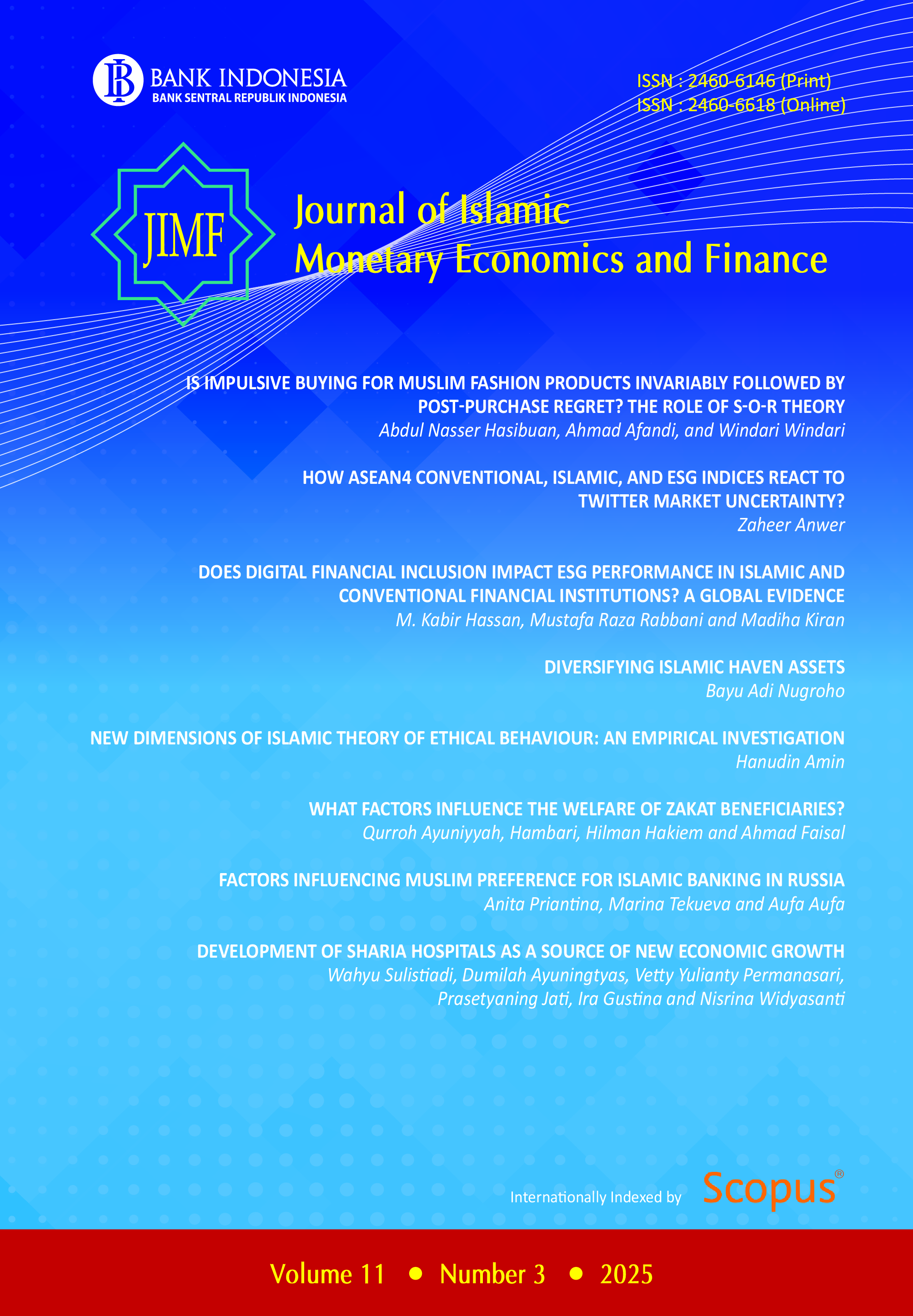Development of Sharia Hospitals as a Source of New Economic Growth
Main Article Content
Abstract
The development of Sharia hospitals represents a unique integration of Islamic values into healthcare services, fostering new avenues for economic growth. This study has three key objectives: (1) examining factors contributing to the establishment of Sharia hospitals, (2) analyzing the essential elements of Sharia hospital development using the Business Model Canvas (BMC) to ensure sustainability; and (3) assessing Sharia hospitals' potential to drive economic growth. Through a mixed-methods approach, quantitative data were collected from 619 patients and 149 respondents, while qualitative insights were gathered through focus group discussions and in-depth interviews with stakeholders including hospital managers and policymakers. Results indicate that Sharia hospitals report higher levels of patient satisfaction and loyalty compared to non-sharia hospitals, with significant emphasis on service quality, and experiential marketing. The integration of Islamic financial instruments such as Zakat, Infak, Sedekah, and Wakaf (ZISWAF) also enhances financial accessibility for underserved populations, promoting equitable healthcare. Indonesia also has the opportunity to open up Muslim-friendly health tourism destinations, attracting patients from other Muslim-majority countries. The growth of Sharia hospitals also contributes to the expansion of the halal ecosystem in Indonesia. This is not only beneficial for the health sector but also drives economic growth.
ACKNOWLEDGMENT
The authors acknowledge the support from the Research Grant Bank Indonesia (RGBI) 2024, for funding this research endeavor.
Downloads
Article Details
Issue
Section

This work is licensed under a Creative Commons Attribution-NonCommercial 4.0 International License.
Journal of Islamic Monetary Economics and Finance is licensed under a Creative Commons Attribution-NonCommercial 4.0 International License.
References
Al Maslul, S., & Priantina, A. (2024). Halal awareness: Impact on purchasing halal medicines unveiled. Journal of Islamic Monetary Economics and Finance, 10(3), 587-608.
Fuadi, M., Suriani, S., & Zulham, T. (2022). Can Sharia finance affect Indonesia’s economic growth. International Journal of Finance, Economics and Business, 1(3), 166-176.
Indriastiningsih, E., Violin, V., Syafri, M., Nurbakti, R., Judijanto, L. Analysis of the influence of customer satisfaction, experiental marketing and e-service quality on loyalty of KAI commuter customers. Jurnal Sistim Informasi dan Teknologi, 5(3), 69-73.
Maharani, V. M., Jati, S. P., & Nugraheni, S. A. (2021). Overview of patient satisfaction to Sharia services hospitals in Indonesia: literature review. Jurnal Aisyah: Jurnal Ilmu Kesehatan, 6(3), 681-686.
Maksum, M., Wahyuni, A., Farida, A. R., Hasanah, L., & Fuad, S. (2022). Sharia service as an added value: Response to sharia standard in hospital service. Samarah: Jurnal Hukum Keluarga dan Hukum Islam, 6(1), 423–446.
Purwanto, P., Sari, F. N., Burasukma, M., & Nursolihah, S. (2021). The role of Islamic social finance through Ziswaf and BMT during the COVID-19 pandemic. MALIA: Journal of Islamic Banking and Finance, 5(2), 81-98.
Ruangsriroj, T., & Suvittawat, A. (2022). The factors influencing value creation of halal logistics service during crisis: A case study of halal logistics service providers in Thailand. Asian Journal of Business Research, 12(2), 28-47.
Suryani, L., Kamil, H., Hasanuddin, H., Yahya, M., Sulastri, S., Agustina, A., Hamzah, S., & Ramadhan, N. (2023). Application of Sharia childbirth innovation model in Indonesia: Perspective of midwives and staff of the Islamic Service Unit. Journal of Family and Community Medicine, 30(3), 204–210.
Windasari, N. A., Azhari, N. P. D. A., & Putra, I. F. (2024). Assessing consumer preferences on halal service: the emergence of Sharia hospitals for Muslim consumer. Journal of Islamic Marketing, 15(1), 22-41.



